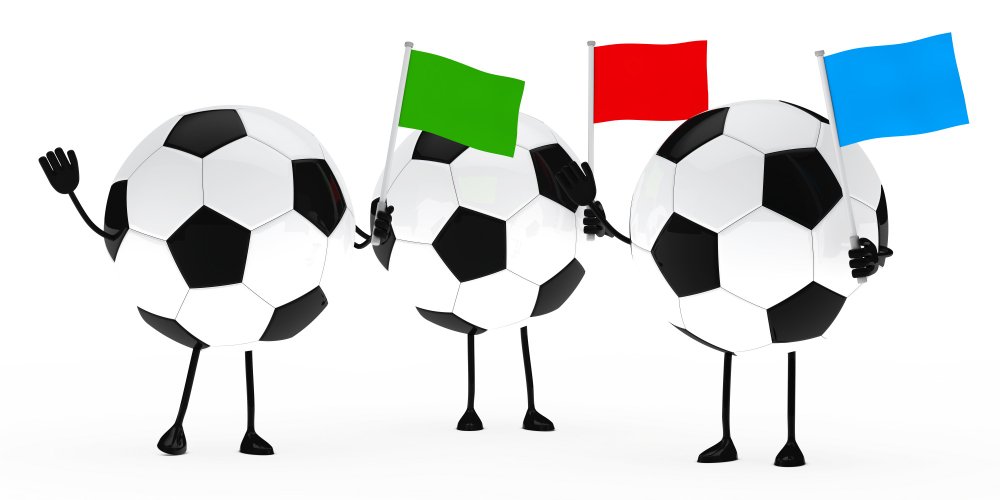The introduction of VAR (Video Assistant Referee) has revolutionized modern football, aiming to eliminate human errors in refereeing decisions. Since its implementation in FIFA World Cup 2018, UEFA Champions League, Premier League, La Liga, and other major football leagues, VAR has sparked massive debates among fans, players, and experts. While some argue that it enhances fair play, others believe it disrupts the flow of the game and creates more controversies.
In this article, we will explore the impact of VAR on football, its advantages and disadvantages, the biggest controversies, and whether it has truly improved the game or ruined it. We will also look at future developments in football technology.
What is VAR and How Does It Work?
VAR is a technology-assisted refereeing system that helps match officials review and correct decisions using video replays. It is used to check four main types of decisions:
- Goals and Offside Decisions
- Penalty Incidents
- Red Card Offenses (Direct red cards, not second yellow cards)
- Mistaken Identity in Cards
The VAR process works as follows:
- The referee makes an initial decision on the pitch.
- VAR team reviews the footage and communicates with the on-field referee.
- The referee either upholds their decision or reviews the footage on the pitchside monitor.
- A final decision is made.

Benefits of VAR in Football
1. Increased Accuracy and Fair Play
One of the biggest advantages of VAR is its ability to reduce human error in critical match-changing decisions. With high-definition slow-motion replays, referees can review incidents in detail, leading to more accurate calls.
2. Reduction in Diving and Simulation
VAR has played a major role in minimizing diving (simulation) and fake penalties. Players who attempt to deceive referees are now at a higher risk of receiving yellow cards due to video reviews.
3. More Accountability for Referees
Before VAR, controversial decisions would lead to widespread criticism of referees. With video assistance, referees now have a second chance to review their calls, reducing the blame game and maintaining the credibility of officiating.
4. Fairer Competition
VAR has made offside calls and penalty decisions more accurate, ensuring that matches are decided by skill and fairness rather than refereeing mistakes. This is especially important in high-stakes games like the FIFA World Cup, Champions League, and domestic league finals.
Controversies and Issues with VAR
1. Slowing Down the Game
One of the most common complaints about VAR is that it disrupts the natural flow of the game. The process of reviewing an incident can take several minutes, leading to long pauses that frustrate fans and players.
2. Inconsistencies in Decision-Making
Despite having technology, there have been cases where VAR decisions are still inconsistent. Different leagues apply VAR rules differently, causing confusion among fans and even players.
3. Marginal Offside Calls
One of the most debated aspects of VAR is the offside rule interpretation. Some goals have been disallowed due to millimeter-level offsides, which were impossible to detect with the naked eye. This has led to accusations that VAR is ruining the attacking nature of football.
4. Controversial Handball Decisions
VAR has also changed how handball offenses are judged. Some decisions seem too harsh, while others are ignored, leading to heated debates over subjectivity in handball rules.
5. Emotional Impact on Fans
Football is an emotional sport, and spontaneous goal celebrations are a huge part of its excitement. With VAR, fans often hesitate to celebrate goals immediately, fearing they may be ruled out upon review. This has arguably taken away some of the raw passion of the game.

Major VAR Controversies in Football
1. Tottenham vs. Manchester City (2019 UEFA Champions League)
In one of the most dramatic VAR moments, Raheem Sterling’s last-minute goal in the UEFA Champions League quarterfinal was ruled out due to an offside decision by VAR, leading to heartbreak for City fans.
2. Liverpool vs. Everton (Merseyside Derby 2020)
Liverpool had a late winner disallowed against Everton due to a controversial VAR offside call on Sadio Mané, sparking outrage among supporters and analysts.
3. France vs. Argentina (FIFA World Cup 2022 Final)
The World Cup final saw multiple VAR interventions, including penalty decisions for both sides, influencing the match’s outcome significantly.
The Future of VAR and Possible Improvements
VAR is still evolving, and football authorities are working on improving its efficiency. Some proposed solutions include:
- Faster Decision-Making – Reducing the time taken for reviews.
- Semi-Automated Offside Technology – AI-powered instant offside detection (already introduced in FIFA Club World Cup and some leagues).
- More Transparent Communication – Broadcasting referee discussions to fans, similar to rugby and American football.
- Limiting VAR Interventions – Using VAR only for clear and obvious errors, reducing overreliance on technology.
The debate over VAR’s impact on football continues, with strong arguments on both sides. While it has improved decision accuracy and fairness, it has also led to frustration over delays and controversial calls. The key to making VAR work is fine-tuning its application, ensuring consistency, and keeping the essence of the game intact.
Ultimately, VAR is here to stay, but it must continue evolving to balance fairness and the natural rhythm of football.

